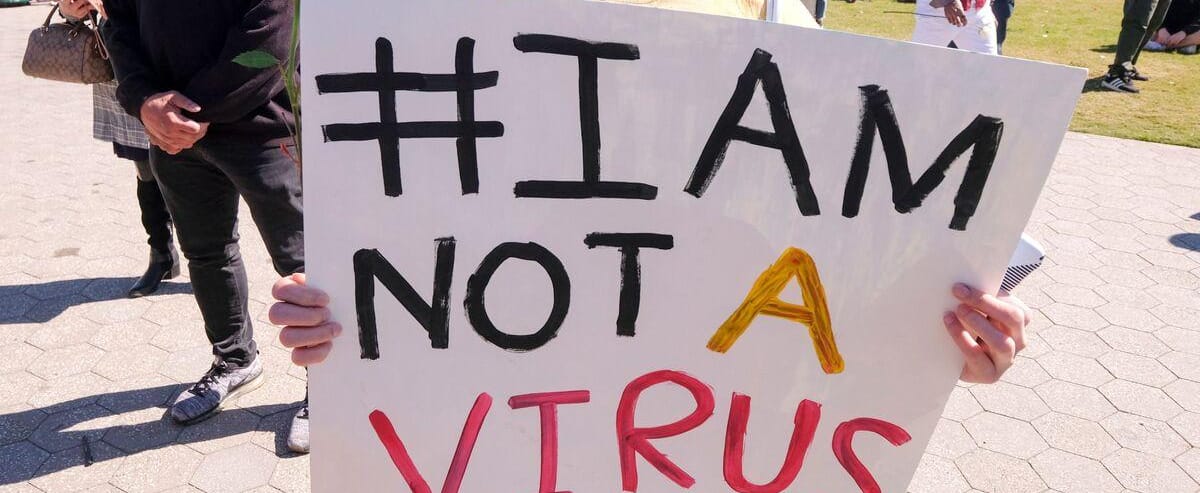Anxiety over Esther Lim slowly sank as the COVID-19 epidemic devastated the United States. Not only for his health and the health of his parents, but also for their safety in the face of attacks on Asian Americans.
After being attacked by one of his friends, he was attacked by a driver for racist reasons, and thirty-one decided to act. He bought pepper spray for his mother, learned judo with the help of his father, and wrote an informative handbook on “How to report a heinous crime.”
Esther Lim, an American of Korean descent, said: “I wanted to do something more than just be afraid.
The handbook, printed earlier this year in six languages: Chinese, Japanese, Korean, Spanish, Thai and Vietnamese, contains hints about the best way to communicate with police and English phrases to show passersby. Ask for help.
Distributes them to friends and community centers in the Asian community in Los Angeles.
Attacks against Asian Americans, mostly older ones, have jumped in recent months, with former President Donald Trump often referring to the corona virus as the “Chinese virus”, according to many activists.
They range from looting businesses run by Asians, to destroying homes and cars and to violence in the streets and sometimes dangerous attacks.
In a stern speech a day after the World Health Organization (WHO) decided to declare COVID-19 an epidemic, President Joe Biden on Thursday evening denounced this unacceptable violence against members of the Asian American community as “attacked, persecuted, accused and used as victims.”
In particular, people of Philippine, Thai, Japanese, Laotian and Chinese descent have been targeted.
While it is difficult to establish racist motives in the wake of an attack, Asian anti-hate crimes nearly tripled in the 16 major cities of the United States from 49 to 122 last year, according to a study by the Center for Hate and Terrorism, based in San Bernardino.
At the same time, however, the number of hate crimes dropped by an overall 7%.
“Protect the community”
When he came to power, Joe Biden signed an executive order condemning racism against the so-called “API” community (Asian Americans and Pacific islanders) during the epidemics.
Some states, such as California and New York, have followed suit, releasing more funds to fight anti-Asian racism, with bills under discussion.
But Esther Lim laments, “I do not think it will be done soon.”
Like her, other Asian Americans have decided to take matters into their own hands through online campaigns, fundraising and self-help groups.
Jimmy Bounpensi has gathered volunteers to take elderly Asians to their homes, patrol the Chinatown neighborhood of Auckland, California, and patrol after waves of attacks and thefts.
“If I could save a person, I would be happy,” he told AFP at one point.
“Our mission is to let people know that we really are there to protect the community at all costs and to ensure that everyone goes home safely,” he continued.
“Those days are over”
The Stop AAPI Hate Association reports that more than 2,800 acts of racism and discrimination targeting Asian Americans, sometimes not physical, were reported online in the United States between March and December.
Beyond the anti-Asian rhetoric associated with the epidemic, the rise of racist attacks has provoked a reflection of hatred targeting this community, which is deeply rooted in the country’s history.
Historical examples do not really exist: the massacre of Chinese workers in the late 19th century.e Century, the Chinese Exemption Act was passed in 1882 – the only U.S. immigration law that exempted an entire ethnic group that imprisoned Japanese Americans during World War II.
Asian society must face the same pattern of “model minorities” that portray an Asian diaspora as monolithic and “close to whites”.
This clichவும் destroys a rich history and leads to the misconception of a community that is not a victim of racism.
“Whatever kind of acceptance (…) Asians have in the United States, it has always been conditional,” said Liz Kleinrock, a writer and consultant on racism issues.
Therefore, “Asians are respected and respected only when they are in line with a low profile,” he says. “Those days are over.”

“Incurable web evangelist. Hipster-friendly gamer. Award-winning entrepreneur. Falls down a lot.”




